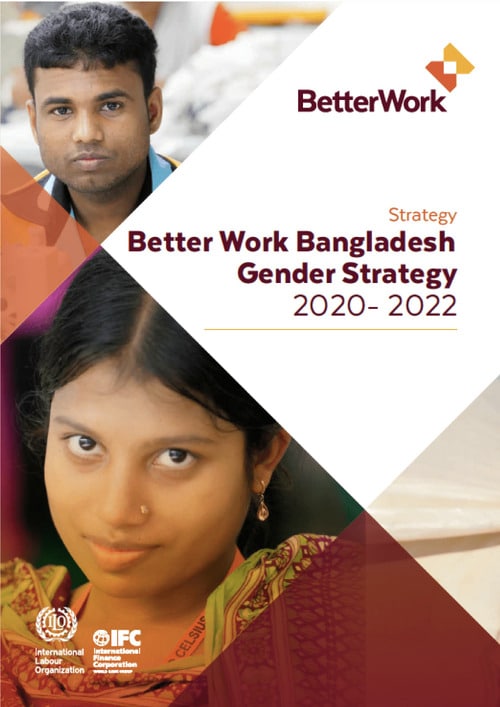Dhaka – 1 February 2021

Better Work Bangladesh has renewed its strategic focus on gender equality and women’s economic empowerment by integrating principles of gender equality and inclusion in all aspects of its work.
Better Work Bangladesh works to support the development of a competitive garment industry that provides decent jobs for workers, including women workers, good business for factories and brands, and economic growth for the country. In a sector that is driven by women workers — who comprise approximately 61.2 per cent of Bangladesh’s apparel industry workforce — gender equality is vital in assuring the success of Better Work Bangladesh. As such, promoting gender quality, the empowerment of women and inclusiveness in Bangladesh’s garment sector is a key part of our strategy.
Addressing gender issues has always been a component of Better Work Bangladesh and is identified as one of the three objectives of Better Work Bangladesh’s Strategy for Phase II (2018-2021). When all workers, men and women, are treated fairly and have decent work, everyone benefits: the workers themselves, their employers, the industry, and the local and national economies. The development of this Gender Strategy captures this renewed strategic focus and is informed by the approach of the Better Work Global Gender Strategy (2018-2022) and the adoption of the International Labour Organization’s (ILO) Violence and Harassment Convention, 2019 (No. 190).
As well as pooling the valuable experience of other Better Work Country Programmes (in particular the longer-standing Better Work Country Programmes in Cambodia, Vietnam, Indonesia, Haiti and Nicaragua),
Better Work Bangladesh’s Gender Strategy is the outcome of an ongoing engagement with key actors contributing to the improvement of working conditions and the competitiveness of the ready-made garment (RMG) sector.
As a significant employer of women, the RMG sector can be linked to the increase in women’s economic participation in Bangladesh in the past fifteen years. Despite such improvements, however, industry stakeholders can do more to improve the working conditions for women and their opportunities for empowerment. While women still make up more than half of all workers in the sector, they continue to be overrepresented in lower-paid positions, with men holding the majority of supervisory roles.
Better Work Bangladesh is well placed within the industry to increasingly focus on the promotion of gender equality in its factory level work, while supporting tripartite constituents to also make this a priority.
This strategy looks at the current context of gender equality in Bangladesh and outlines Better Work Bangladesh’s approach, while laying out a future framework for promoting gender equality in the Bangladeshi garment sector.